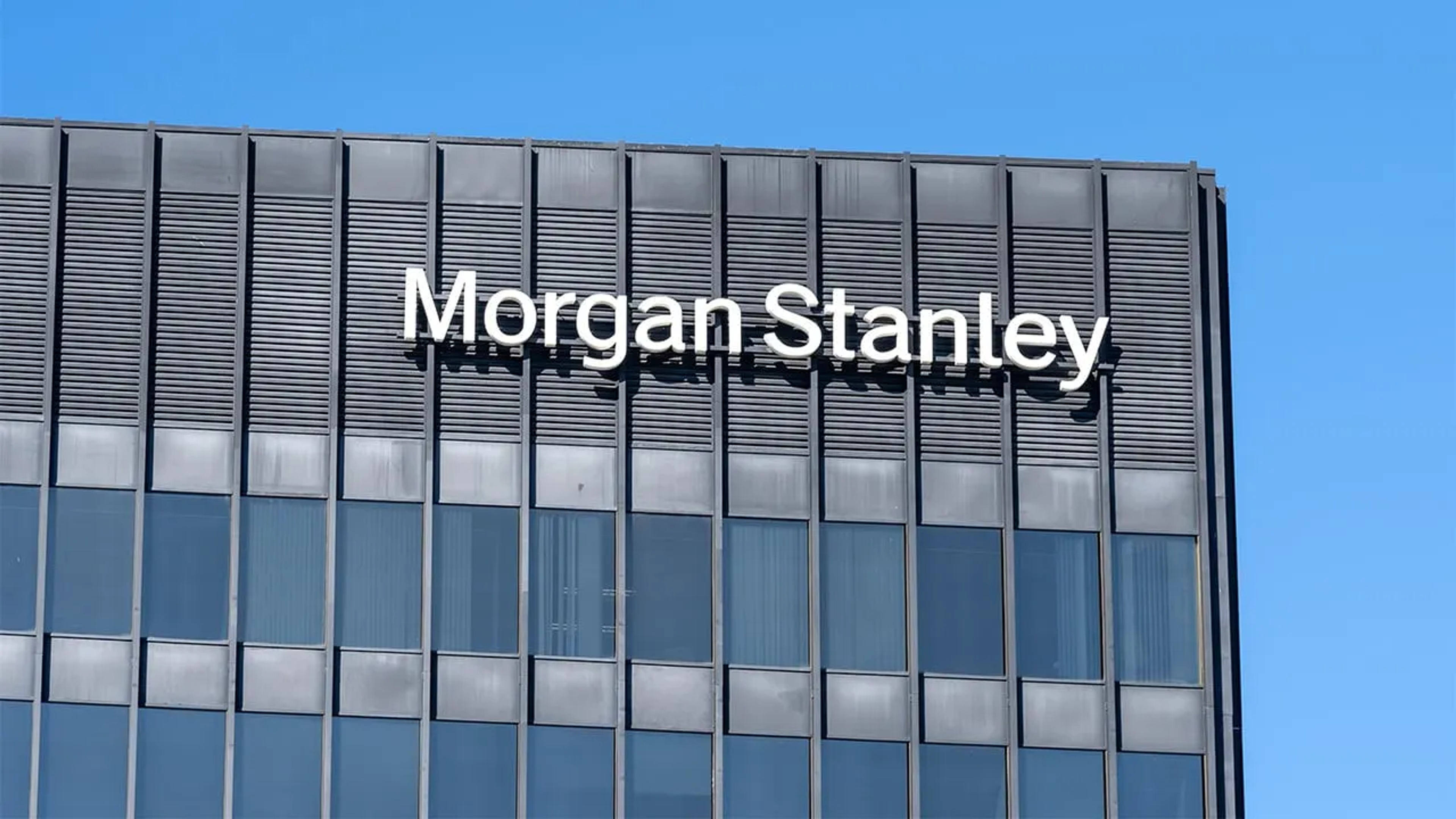Morgan Stanley Interview Guide: Process, Questions, & Tips (2025)
Prepare for your Morgan Stanley interview with this comprehensive guide. Learn the process, common questions, and expert tips to stand out as the ideal candidate.
Posted August 15, 2025

Table of Contents
Preparing for a Morgan Stanley interview is a critical step in advancing your career in the finance industry. As one of the most prestigious firms in the field, Morgan Stanley expects candidates to showcase strong technical skills and a deep understanding of the firm’s core values and culture.
Whether you're applying for a summer analyst position or a full-time investment banking analyst role, this guide will help you navigate the interview process. From answering these interview questions with confidence to demonstrating your knowledge of current affairs and markets, you'll find strategies to help you stand out as the ideal candidate.
About Morgan Stanley: A Brief Overview
Founded in 1935, Morgan Stanley is a leading global investment bank, specializing in investment banking, wealth management, and institutional securities. The firm operates across various business units serving a diverse, global client base. It is known for its innovation and strong reputation in shaping market trends.
To succeed at the firm, candidates must align with its core values. Integrity must be observed as the firm places great importance on maintaining high ethical standards in all interactions. Client focus is also crucial, with the firm dedicated to providing exceptional value and always putting clients’ needs first across its various business units. Innovation is another valued trait, as candidates are expected to offer creative solutions to complex financial challenges and contribute fresh, practical ideas to help the company stay ahead. Diversity also plays an important role in shaping the company’s culture as it fosters an inclusive environment where different perspectives are embraced.
In the Morgan Stanley interview, candidates must showcase technical expertise, strong leadership, and an ability to align with the firm’s core values. A deep understanding of the finance industry and the ability to demonstrate how your skills can contribute to the firm’s continued growth will help you stand out as the ideal candidate. Morgan Stanley places great emphasis on community engagement, striving to make a positive impact through philanthropic efforts. Candidates who embody these values and clearly understand the finance sector are likely to receive positive feedback and be recognized as a great fit for the role.
Sample Morgan Stanley Interview Questions & Answers
1. Tell me about yourself.
Sample Answer: I’m currently completing my degree in Finance at [University], where I’ve built strong technical expertise in financial modeling, valuation techniques, and an understanding of market trends. I had the opportunity to lead a team during my internship at [Company], where I was tasked with analyzing company valuations. I delegated tasks based on individual strengths, ensuring the team worked efficiently and received positive feedback from the senior management. I’m passionate about the finance industry and excited about the opportunity to contribute to the company's growth.
2. Why do you want to work at Morgan Stanley?
Sample Answer: Morgan Stanley’s reputation as a leader in the finance industry is a major attraction for me. The firm’s core values, such as integrity, client focus, and innovation, align closely with my professional approach. I’m particularly interested in Morgan Stanley's diverse business units and its strong emphasis on leadership. The firm’s commitment to growth and its positive culture make it an ideal place to develop my career in investment banking.
3. How would you explain a DCF model to a client with no finance background?
Sample Answer: A Discounted Cash Flow (DCF) model is a way to estimate a company’s current value by assessing its future cash flows. I’d explain it like this: ‘We estimate how much money the company will make in the future, then adjust that for the time value of money because money today is worth more than the same amount in the future. By doing this, we can determine whether an investment is worthwhile.’ It’s a technique often used to assess companies in the finance industry, especially for clients looking to make informed decisions.
4. Can you describe a time when you led a team?
Sample Answer: During my internship at [Company], I took a leadership role in a project analyzing a company’s financials. I delegated tasks to my team based on individual strengths, ensuring clear deadlines and collaboration. The effort paid off, as we completed the analysis ahead of schedule and received positive feedback from the management team. This experience helped me understand the importance of leadership and how it can drive successful project outcomes, especially in the context of financial decision-making.
5. What is your understanding of Morgan Stanley’s core values?
Sample Answer: Morgan Stanley’s core values emphasize integrity, client focus, and innovation, all of which resonate deeply with me. Integrity means maintaining high ethical standards in every decision. Client focus highlights the importance of understanding and prioritizing client needs. Innovation is about finding creative solutions to challenges, particularly in financial management. I align with these values, as they shape how I approach problem-solving and leadership in the finance industry.
6. What is a Comparable Company Analysis (CCA)?
Sample Answer: A Comparable Company Analysis (CCA) is a valuation technique used to assess a company’s value relative to its peers in the same industry. We examine key metrics like earnings before interest, taxes, depreciation, and amortization (EBITDA) or revenue, and apply multiples from similar companies to estimate the company’s market value. It’s commonly used in the finance industry to assess companies in a given market segment or business division.
7. How do you handle a situation when you disagree with a team member?
Sample Answer: When I disagree with a team member, I focus on articulating my point clearly while listening to their perspective. I believe in collaborating to find a solution that aligns with the team’s goals. For example, during a recent project, my team and I had differing views on which approach to take for an analysis. I took the time to explain my reasoning, and after a constructive discussion, we reached a consensus. This experience taught me the value of open communication and working toward a common goal in a leadership context.
8. How do you stay updated on market trends?
Sample Answer: I stay updated by researching current affairs and trends in the finance industry. I regularly read financial publications like Bloomberg, The Wall Street Journal, and Financial Times. Additionally, I attend webinars and industry events to hear from experts and gain insights into the future of markets. This helps me understand the economic forces shaping financial decisions, particularly in the context of the business units within firms like Morgan Stanley.
9. How would you explain the impact of interest rates on bond prices?
Sample Answer: When interest rates rise, the price of existing bonds typically falls. This is because new bonds are issued with higher interest rates, making older bonds with lower rates less attractive to investors. Conversely, when interest rates fall, existing bonds become more valuable as their fixed rates look more attractive in a lower-interest environment. This relationship between bond prices and interest rates is crucial for understanding how different asset classes respond to changes in the economy.
10. Describe a time when you had to solve a complex problem.
Sample Answer: During my internship, I was tasked with analyzing a large dataset of financial transactions. The dataset was incomplete and contained errors, which blocked our ability to draw insights. I took the lead in cleaning the data by filling in missing values and removing inconsistencies. Once the data was prepared, I identified key trends that led to actionable insights for the team. This experience showed me the importance of preparation, effort, and leveraging resources to solve complex financial problems.

The Morgan Stanley Interview Process
The Morgan Stanley interview process is designed to assess both your technical skills and your fit within the firm’s culture. Here’s a step-by-step breakdown of what to expect:
1. Application Review
The first step in the interview process is the application review. Recruiters will thoroughly examine your resume for relevant experience, academic performance, and skills. For summer analysts or investment banking analysts, it’s crucial to highlight your leadership role, relevant internships, and any experience demonstrating your ability to handle complex financial work. Showcasing measurable achievements such as managing projects, handling financial analysis, or collaborating with cross-functional teams can set you apart.
Expert Tip: Tailor your resume to reflect the key skills Morgan Stanley seeks. Focus on achievements in finance and leadership.
2. Online Assessment
Once your resume passes the initial screening, you’ll likely be invited to take an online assessment. This assessment evaluates your logical reasoning, numerical analysis, and basic finance knowledge. Expect questions that assess your understanding of market trends, interest rates, and financial models.
Expert Tip: Practice logical reasoning and numerical questions from platforms like Wall Street Prep or Coursera to sharpen your analytical skills. The assessment will test your ability to solve real-world financial problems quickly.
3. First-Round Interview
The first-round interview combines behavioral and technical questions that aim to assess your skills, teamwork, problem-solving, and communication abilities. Common questions might include:
Describe a time you took a leadership role in a project.
Sample Answer: During my internship, I led a team to analyze a company’s financials. I delegated tasks based on strengths, set deadlines, and we completed the analysis ahead of schedule, receiving positive feedback from the senior team.
How would you explain a complex financial concept to a client?
Sample Answer: To explain a Discounted Cash Flow (DCF) model, I would say, ‘We are calculating how much future cash flows are worth today by accounting for time and risk, which helps determine the present value of an investment.'
Also, expect finance-related questions testing your understanding of valuation techniques, market movements, and business fundamentals, such as:
Can you walk me through a Comparable Company Analysis (CCA)?
Sample Answer: In a Comparable Company Analysis, what I would do is research a peer group in the same industry and business units. Then pull key metrics like P/E and EV/EBITDA from public filings. Then I would apply those multiples to the target company’s numbers to estimate value, making sure to assess trends, market conditions, and growth potential.
Expert Tip: You’ll need to demonstrate your understanding of key metrics like P/E ratios and EV/EBITDA. Prepare by practicing these types of questions, especially financial industry topics. Focus on clear examples and confident explanations of these concepts.
4. Superday: The Final Round
The Superday is the final and most demanding part of the interview process. It includes a series of back-to-back interviews with senior team members. During this round, you’ll face technical case studies, situational questions, and problem-solving exercises. The goal is to assess your confidence, technical expertise, and ability to collaborate with others. You’ll need to articulate your thought process clearly and demonstrate how you can contribute to Morgan Stanley’s growth in investment banking.
Expert Tip: Practice case studies and problem-solving exercises ahead of time. Ensure you can clearly explain your reasoning and discuss the impact of economic trends and market movements on investment decisions.
What Morgan Stanley Looks For in Candidates
Morgan Stanley seeks candidates who are strong in both technical areas and cultural fit. Here’s what they expect from summer analysts and investment banking analysts:
Technical Skills
Morgan Stanley looks for candidates with a solid finance foundation, including skills in DCF, precedent transactions, and comparable company analysis. You should understand how markets work, how economic trends affect different asset classes, and be comfortable using Excel to build and manage complex models. Knowing your way around balance sheets, income statements, and cash flow statements is also a must.
Soft Skills and Cultural Fit
While technical expertise is important, Morgan Stanley also values strong soft skills. They look for candidates who can lead confidently, make sound decisions, and delegate effectively. Clear communication is also essential, especially when breaking down complex ideas for colleagues and clients. Teamwork also plays a big role in the firm’s culture, so the ability to collaborate and contribute in group settings is highly valued. Just as important is cultural fit, showing passion for finance, aligning with the firm’s core values, and staying committed to helping clients succeed.
Read: Time Management in Investment Banking Interviews: How to Prioritize Your Answers
Following Up After the Interview
After your Morgan Stanley interview, send a thank-you email within 24 hours to show professionalism and interest. Thank the interviewer for their time, express how your skills align with the firm’s values, and reference a specific point from your conversation to show engagement. Keep the message concise, clear, and professional to leave a strong final impression. Be professional, concise, and articulate in your message.
Read: Mastering Investment Banking Coffee Chats: Essential Tips and Strategies for Success
Following Up After the Interview: Dos and Don'ts
Following up after a Morgan Stanley investment banking interview is a critical step that can help you leave a positive impression and showcase your continued interest in the position. Here are some dos and don'ts to consider:
| The Dos | The Don'ts |
|---|---|
| Send a thank-you email: Within 24 hours, send a personalized thank-you email to each interviewer. Mention something specific from the interview to show your engagement. | Don’t be pushy: Avoid being overly aggressive or pushy in your follow-up communication. Respect their time and decision-making process. |
| Reiterate your interest: Use the thank-you email to reaffirm your enthusiasm for the role and the company. Mention aspects of the company's work, culture, or projects that resonate with you. | Don’t overdo it: One follow-up email is generally sufficient. Sending multiple emails or contacting them through various channels can come across as excessive. |
| Highlight your fit: Emphasize how your skills, experience, and passion align with the role and the company’s goals. Remind them why you're a strong candidate. | Avoid generic messages: Make your email specific to the interview and the company. Avoid using generic templates that might seem insincere. |
| Share additional insights: If there was something you didn’t elaborate on during the interview, briefly address it in your email to provide more context. | Don’t bring up compensation: Avoid discussing compensation or sensitive topics in your follow-up email. Focus on your fit for the role and the company's culture. |
| Show appreciation: Express gratitude for the opportunity to interview and learn more about the company. | Don’t stalk on social media: It’s okay to connect on platforms like LinkedIn, but avoid excessive interaction or commenting on all their posts. Respect their online boundaries. |
| Be professional: Maintain a professional tone, use proper grammar, and keep your email concise and to the point. | Don’t expect immediate responses: Interviewers may be busy and might not respond right away. Be patient and allow them time to review their options. |
5 Expert Tips for the Morgan Stanley Interview
Master the Technical Foundations First
Morgan Stanley’s technical questions often delve deep into finance concepts, such as valuation techniques (e.g., DCF, precedent transactions) and market trends. Don’t just memorize formulas. Understand the logic behind them. For example, when asked about interest rate impact on asset classes, demonstrate a solid grasp of how macroeconomic trends influence financial instruments like bonds and equities. Go beyond theoretical knowledge by practicing real-world scenarios and using current affairs to illustrate your understanding of market dynamics.
Tailor Your Leadership Examples to Morgan Stanley's Values
While answering behavioral questions, specifically about leadership, it’s crucial to tie your experience to Morgan Stanley’s core values: integrity, client focus, and innovation. For instance, if asked, “Describe a time you took a leadership role,” don’t just explain your leadership in delegating tasks. Focus on how your leadership contributed to solving a client’s problem or led to positive feedback. Highlight how you made decisions that aligned with long-term success, showing that your leadership directly benefited both clients and team collaboration.
Understand Morgan Stanley's Culture, Speak Their Language
In addition to technical preparation, cultural fit is crucial. During the interview, subtly weave Morgan Stanley's culture into your responses. When discussing how you handled challenges, demonstrate how you balance client needs with innovation. For example, when answering, "How do you handle client criticism?" show that you prioritize client relationships while demonstrating problem-solving, a key part of Morgan Stanley’s approach. Doing this will help you speak their language and show your alignment with their culture.
Quantify Your Achievements, Go Beyond Results
When providing examples of your leadership or teamwork, don’t just state that you led a project. Quantify the impact. For instance, instead of saying, “I led a team on a financial analysis project,” you could say, “I led a team that identified investment opportunities, resulting in a 15% increase in portfolio performance over 3 months.” By backing up your experience with measurable outcomes, you demonstrate your ability to deliver results.
Prepare for Superday by Practicing Real-Time Problem Solving
The Superday is a rigorous final stage, often including live case studies and problem-solving exercises. Don’t just practice static case study questions; simulate real-time problem-solving under pressure. Record yourself explaining complex financial concepts in 2–3 minutes, or try out timed exercises where you analyze a set of financial statements and propose an investment strategy. The goal is to be able to articulate your thought process clearly and quickly, demonstrating your ability to perform under pressure.
The Bottom Line
To nail your Morgan Stanley interview, it’s all about finding the balance between showcasing your technical skills and aligning with the firm’s values. You’ll need to explain complex financial concepts like DCF and CCA clearly and confidently, while sharing examples of your leadership and teamwork that demonstrate integrity, client focus, innovation, and diversity.
Be prepared to solve problems on the spot and back up your achievements with measurable results. Stay updated on market trends to show you are in tune with the industry. And don’t forget the follow-up! A thank-you email within 24 hours can leave a lasting impression and reinforce why you're the right fit.
Work With Investment Banking Coaches
Get ready for your investment banking interview with help from an expert coach. Practice key questions, sharpen your skills, and build confidence to stand out. Start preparing for success today!
Read these next:
- The Top 20 Most Frequently Asked Investment Banking Technical Interview Questions
- 35+ Free Resources to Break Into Investment Banking
- How to Nail the Second Most Common Investment Banking Interview Question ("Why This Firm?")
- How to Answer the "Why Investment Banking?" Interview Question
- 25+ Questions To Ask At a Career Fair
- The Best MBA Programs for Investment Banking
- 20+ Best Questions to Ask at the End of an Interview
FAQs
How do I prepare for a Morgan Stanley interview?
- To prepare, research the firm thoroughly, focus on understanding its core values and business units, and practice answering both behavioral and technical questions. Be ready to showcase your leadership, teamwork, and finance knowledge. Review financial models, valuation techniques, and key concepts in market analysis to ensure you're well-prepared for technical questions.
Is the Morgan Stanley interview tough?
- Yes, the Morgan Stanley interview is known to be challenging. It assesses both technical skills and cultural fit. The process includes multiple rounds, including a rigorous Superday, where you'll face case studies, situational questions, and problem-solving exercises. Preparation is key to succeeding.
How many rounds of interviews are there at Morgan Stanley?
- There are typically four stages: the application review, online assessment, first-round interview, and Superday. The first three focus on technical and behavioral questions, while the Superday is an intensive final round with senior team members.
Is Morgan Stanley hard to get into?
- Yes, Morgan Stanley is highly competitive, given its status in the finance industry. The firm looks for candidates with strong technical skills, leadership potential, and cultural fit. Demonstrating expertise in finance, along with a deep understanding of the firm’s values, will increase your chances.











